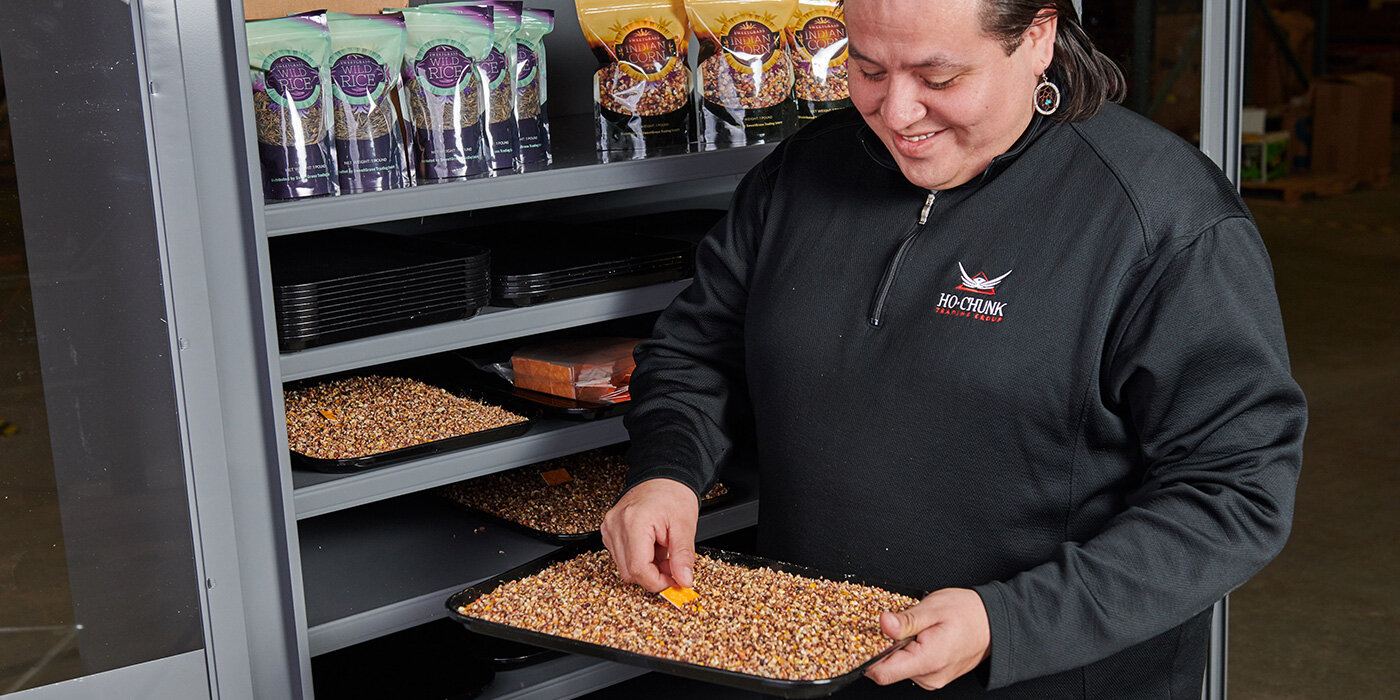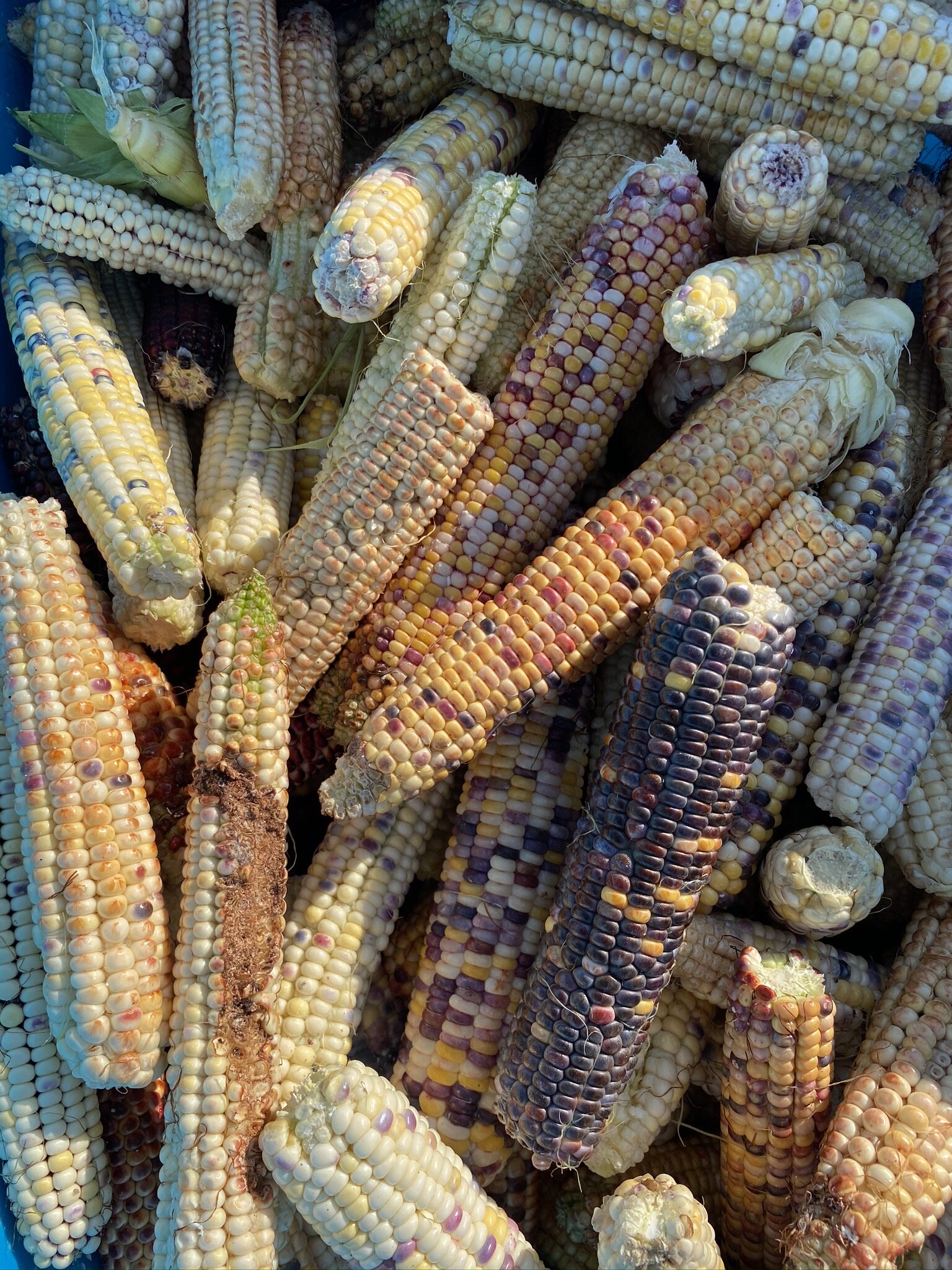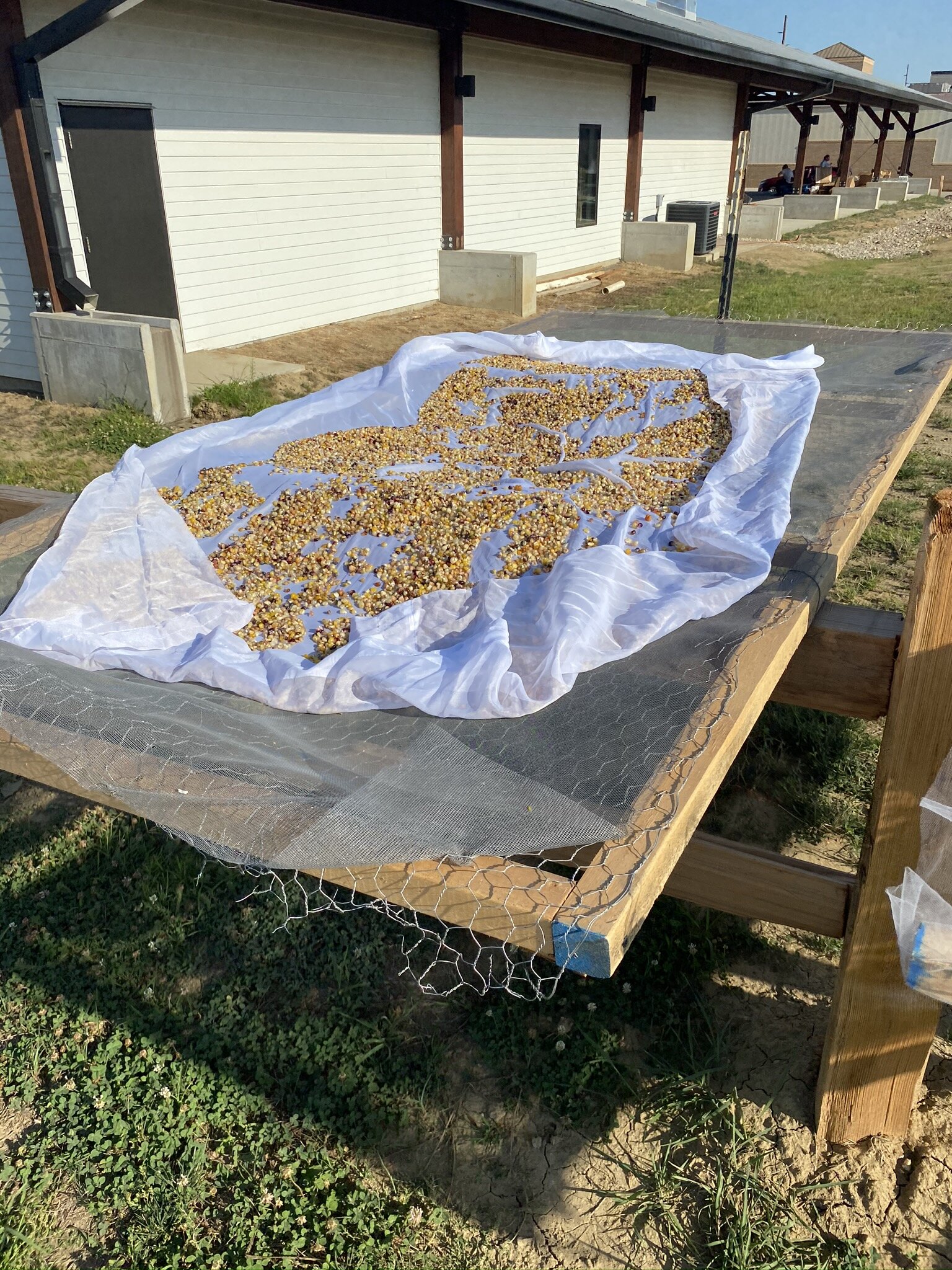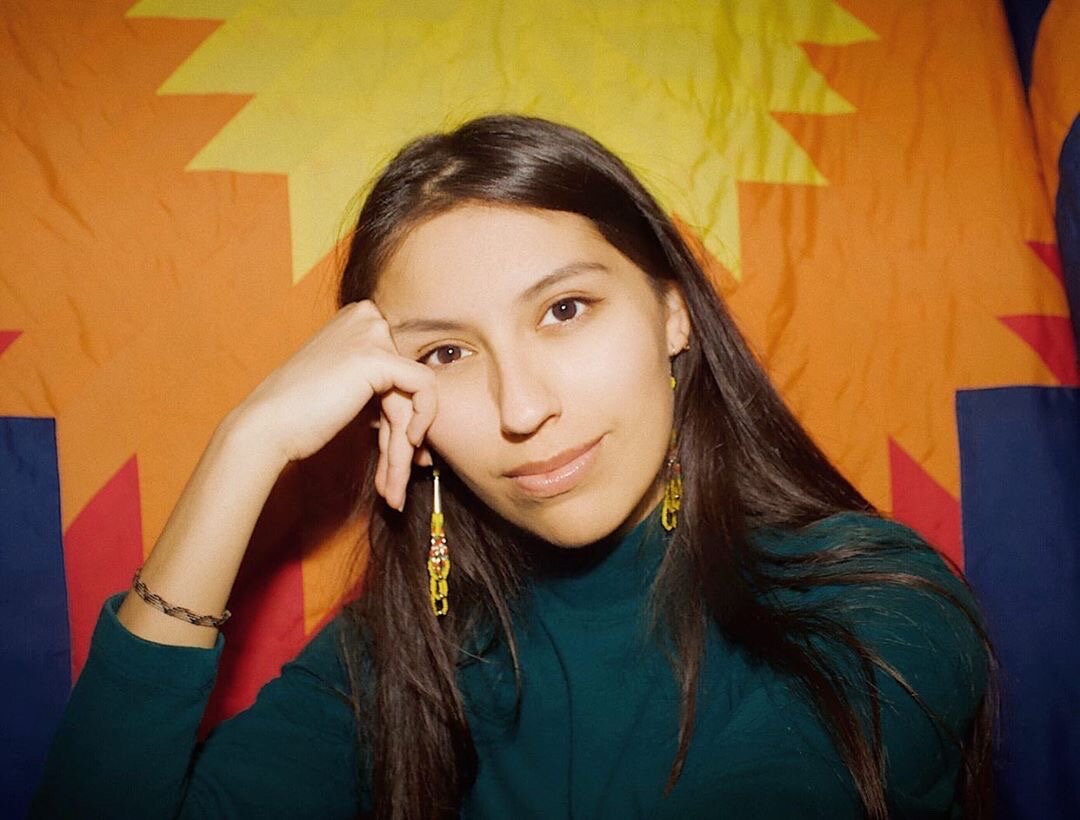You share authentic Native American foods, recipes, wellness products, and more. How did the company evolve from the Ho-Chunk trading group and how did the business grow?

Photo courtesy of Sweetgrass Trading Co.
In 2013, Ho-Chunk Trading Company, a family of companies under Ho-Chunk Inc. identified a need. Authentic Native American products were available across the nation, yet there was not a communal marketplace where all of these products are featured. Instead, it was up to each tribe to produce, market, and distribute their own goods. Although this was working, it was less than efficient. The Ho-Chunk Trading Group believed it could be done better.
The Ho-Chunk Trading Group thought buying Native American products didn’t need to be so difficult. Instead, of the existing, disconnected structure of Native American foods and products, they aimed to develop a marketplace where potential consumers were able to easily find, buy and support authentic Native American products. This hope led to the creation of SweetGrass Trading Company.
Y'all have brought ancient traditions to a large audience of customers. How do you preserve the legacies you engage and pass them along to your customers?

Corn collected for the Indian Corn project Photo courtesy of Sweetgrass Trading Co.
One great example of this is the Indian Corn project. Each year, Ho-Chunk Farms works to harvest Indian Corn on the Winnebago Reservation. Students from Little Priest Tribal College, members of the Boys and Girls Club and elders from the community come together to pick the corn and remove each kernel by hand. The corn is dried in the sun for about three days before being packaged and sold by SweetGrass. This tribal practice helps revitalize and preserve traditions and is part of the healing process for the generations of turmoil that Native people have faced.
You provide additional classifications for your products to indicate those produced by Native American entrepreneurs and those created by individuals and businesses determined to be in alignment with traditions. How can more businesses facilitate opportunities and support for Native American products and entrepreneurs? And how can other companies support and connect with Indigenous people groups and initiatives.
Companies should create good relationships with their local tribe(s) and find opportunities to work together. There are often many ways that tribes and businesses could collaborate in a way that benefits both parties. Communication is key. Businesses should reach out to local tribes and have regular conversations about events and issues and how problems can be tackled together.

Corn drying during the Indian Corn project Photo courtesy of Sweetgrass Trading Co.
We've engaged with elders and tribes who've lost their tradition of yaupon due to relocation. What would you tell a company like ours about bringing back this incredible indigenous plant to a wider audience and still respecting this plant and tradition?
It is very important that traditions are respected. Always consult with tribal members to make sure the processes used honor Native American traditions and practices. Include tribal members in the process whenever possible. Not only does this help members of your company learn about traditional methods, but it is part of the healing process for Native people.
Your business is deeply rooted in the Native American heritage, especially the Winnebago Tribe. With this, y'all launched the Native Scholarship Program to help college students afford their education. How has this commitment to not only the past but the future of the Native American heritage impacted your business?

This year’s scholarship recipient, Lily Painter. She hopes to someday work at the National Museum of the American Indian. Photo courtesy of Sweetgrass Trading Co.
SweetGrass Trading Company is committed to helping provide economic opportunity for the Winnebago Tribe, as well as the tribal entities we partner with. We are also dedicated to helping other Native people get a hand up to build a better future. A large part of our business is to ensure what we do benefits Native people. The scholarship program supports students who will one day be future leaders of our tribes and our communities.
It is not secret that nationwide, Native students lag behind non-Native students in college enrollment and completion. Native students face a number of barriers and challenges that other students do not, such as lack of cultural inclusion and underrepresentation in the college setting. Our hope is that the scholarship helps ease the financial burden of college so that students can focus on their studies and find success.
What is next for y’all?
SweetGrass is always looking to expand its product selection and add more authentic Native American products to its catalog. We are excited to see what the next few years hold and to make new connections to build our company. Anyone interested in selling with SweetGrass can contact us on our website at sweetgrasstradingco.com or email SweetGrass@SweetGrassTradingCo.com.







